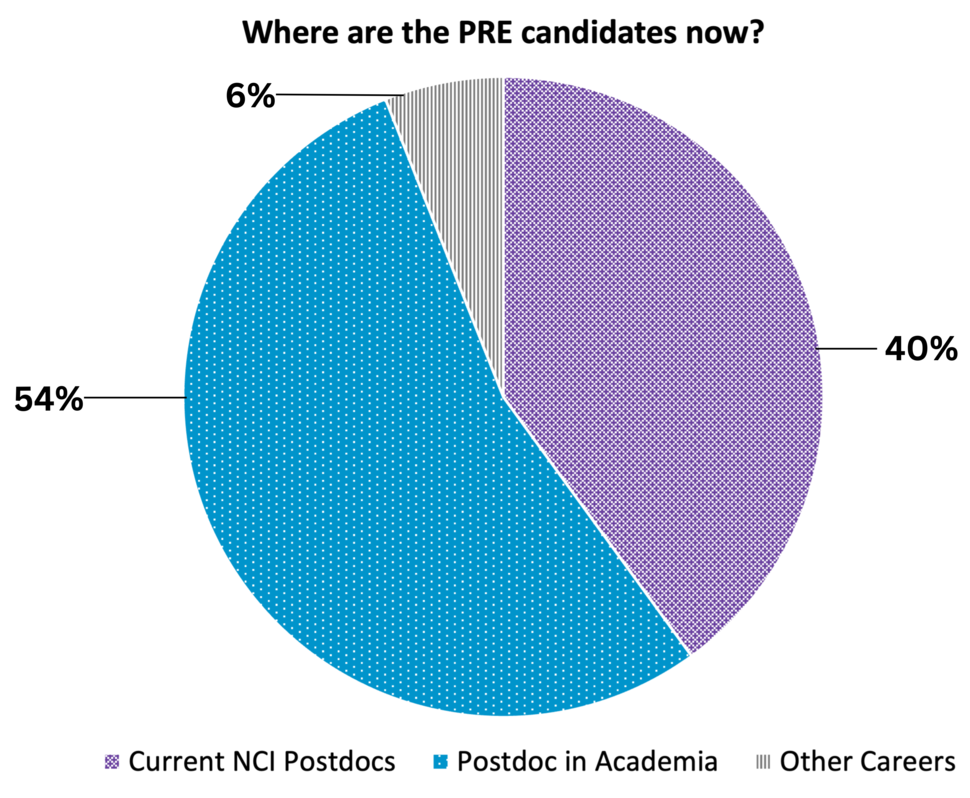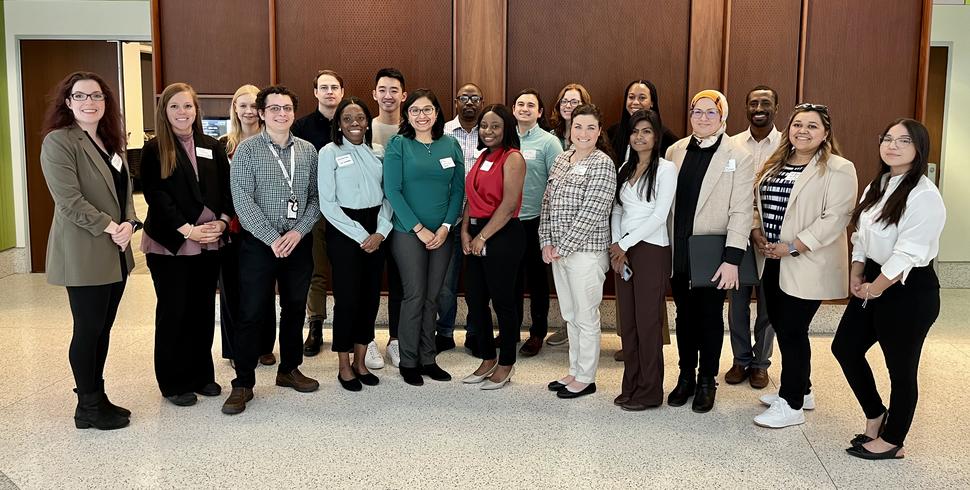The Postdoc Recruitment Event (PRE) (formerly known as the Graduate Student Recruiting Program) provides doctoral candidates the opportunity to explore postdoctoral opportunities at the National Cancer Institute (NCI). The goals of PRE are to support doctoral candidates during their career exploration and raise awareness of the rich training environment and unique resources available at NCI.
As part of the program, accepted applicants will:
- Network with Principal Investigators and laboratory personnel, current fellows, and Training Directors to learn more about research conducted at NCI;
- Discover professional development, career exploration, and funding opportunities that NCI offers to help postdoctoral fellows succeed in their future career paths; and
- Visit the NIH/NCI campuses and tour select research facilities.
Travel support, including flight, lodging, and meals are covered for eligible individuals. To be eligible for travel support, individuals must live more than 50 miles away from the NCI’s main campus in Bethesda, Maryland.
Participants receive guidance on how to conduct interviews, opportunities to meet one-on-one with NCI investigators and funding program directors and begin to establish a network within NCI. While PRE does not guarantee a postdoc position, over 50% of the participants receive official interviews as a direct result of the program. Over the last 5 years, 42% of participants who pursued a postdoc are/have completed their postdoc at the NCI.
Benefits of a Postdoc
- Extensive professional and career development opportunities
- Access to state-of-the-art research and equipment
- A variety of core facilities to assist with your experimental needs
- Fellow-led groups that foster community
- Career exploration resources and opportunities to transition to non-academic career paths
How to Apply
Information on eligibility, and the application and selection processes can be found at Train at NCI. NCI is committed to training the next generation of scientific leaders.
For Additional Information
If you have questions about the program, please contact ncipre@nih.gov

